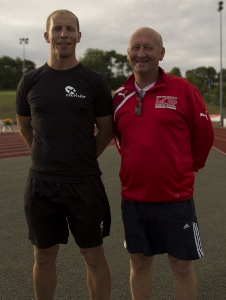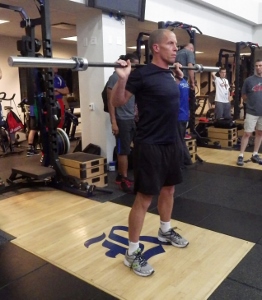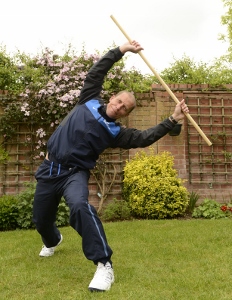Main Menu
Latest Blog Entry
User login
4 reasons why conditioning coaches hamper athletic development.
Brian Ashton has written an interesting piece on his blog about conditioning coaches working with athletes. In it he quotes Simon Shaw who worried that young rugby players were becoming “gym monkeys” and losing their playing instincts.
Is that the players’ fault or the conditioning coaches? It is a common trait amongst sports teams, and sometimes the work is hampering athletic development, rather than helping it. Here are 4 reasons why:
There is a disconnect between the Head Coach and the Conditioning Coach.
 The head coach doesn’t ever see what goes on in the gym, he just sees some test scores and some injury reports. He may or may not visit when it is testing time.
The head coach doesn’t ever see what goes on in the gym, he just sees some test scores and some injury reports. He may or may not visit when it is testing time.
The strength and conditioning coach doesn’t see what is happening on the field or on the court, he never watches the players actually training.
How can they influence and inform each other if they don’t actually see what is happening elsewhere?
As a strength and conditioning coach in Devon, I endeavour to get out with the good coaches as much as possible.
(Kevin Skinner, of Exeter Harriers, is 1 of the coaches I enjoy working with)
The Conditioning Coach is a JAFA
Coming straight out of University (taught by JAFAs not coaches), or performing the role part- time as part of a “research project” the players are actually treated as test subjects. Lots of measurement, evaluation, scores and pseudo scientific graphs.
Little or no observation of movement, accounting for outside influences such as matches, travel and that horrible thing called “life” which has a major impact on training.
The use of confirmation bias will bluff the head coach into thinking that it is all scientific. Little or no critical evaluation of the research will take place, it will usually be a single discipline quoted. Whereas sport covers multi disciplines, all having an effect at different times, to different extents on different players.
A good coach can filter the research and knowledge and apply it as required. Similarly, they can just alter the session planned to what has immediately preceded the athlete appearing. Sometimes this is raising the intensity, sometimes it is lowering it. Sometimes it is just doing something for fun or for challenge.
They keep the athlete in the frontal plane
 If you just train the athlete in the frontal plane, they become better at moving…. in the frontal plane. Whole gyms are designed around platforms and cages that encourage this.
If you just train the athlete in the frontal plane, they become better at moving…. in the frontal plane. Whole gyms are designed around platforms and cages that encourage this.
Stick a few benches in there so the athletes can lie down and you are actively encouraging non -athleticism.
For those coaches who obsessively quote research on weightlifters- the old style lifters did lots of work outside of the gym. Hill sprints, throws, dbell complexes, and strongman work.
They were athletes who did a lot of work on the platform, but worked on their athleticism as well. Just looking at them as great vertical jumpers and 10m sprinters and transposing that onto every other athlete is naive.
Bend, twist, run, jump, throw, crawl. Load all of these things. Then unload them and move fast. Then add decision making. Now you will help create athletes (see 8 ways to move like an athlete)
They take shortcuts and miss the fundamentals
 “Have you seen this latest potion on the internet“, “have you heard of exercise X” “have you seen this workout“? It is easy to become an internet tart and jump from one website of training ideas and expensive equipment to another.
“Have you seen this latest potion on the internet“, “have you heard of exercise X” “have you seen this workout“? It is easy to become an internet tart and jump from one website of training ideas and expensive equipment to another.
It is easy to follow “gurus” and not develop your own ideas. The problem is that you may not have a plan that systematically develops your athletes, rather than breaking them or confusing them.
I got asked on a coaching course last year by a Personal Trainer to “skip all the boring bits” and get onto the exciting exercises (the same “expert” also asked me to train him and use his body as test for my methods- just a bit too up close and personal for my liking!).
If by boring bits you mean the ability to squat, hold your body in different positions and run properly, then yes I am probably boring. But guess what? The “boring bits” are what help you develop as an athlete.
Taking shortcuts only results in deficiencies and injury potential later on. If you can’t make the fundamentals FUN, or if you get bored of coaching them, then you are probably in the wrong job.
In short- widen your horizon of knowledge and understanding, develop a plan and method of training, work with the coaches, and challenge your athletes.
Further reading:
Client Testimonials
 London Welsh RFC
London Welsh RFC
James has provided a wealth of experience and expertise to the Academy set up at London Welsh RFC in recent years. He has addressed both the physical and mental development of the players through innovative, player and position specific programmes which have resulted in each individual within the group developing towards their potential.
More


Comments
[…] conditioning- lack of foundation training from an early […]
[…] posts like this on “4 reasons why conditioning coaches hamper athletic development” will […]
[…] it is, it will hamper your Athletic Development and your rugby […]
[…] 4 4 reasons why conditioning coaches hamper Athletic Development […]